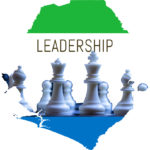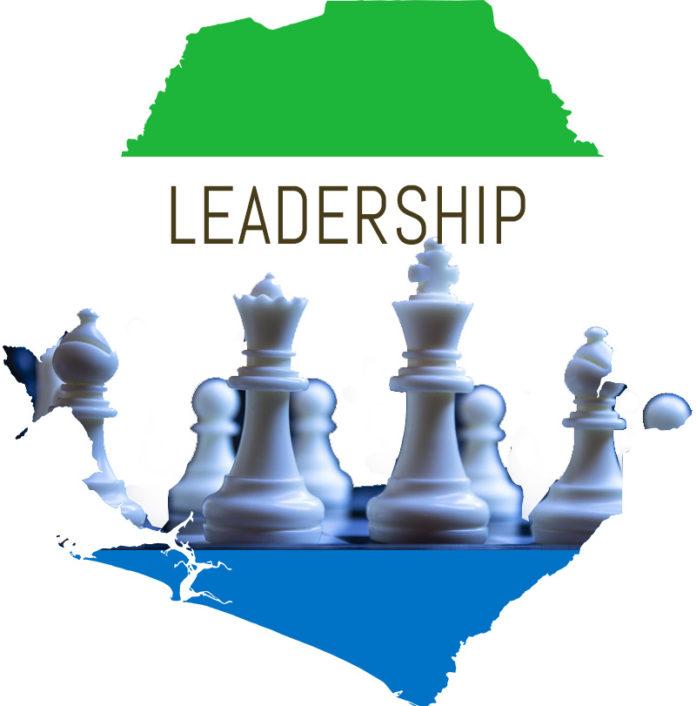
Hypocrisy is the homage vice pays to virtue.
–Duc de la Rochefoucauld
Leadership models can be very hard to find in a country that hardly produces heroes but liars, bootlickers and sycophants. Thomas More, beheaded on the orders of Henry VIII in 1535, is today criticised for worldliness and ambition. However, flawed and fallible like the rest of us, he nevertheless died for a principle that was as important then as it is now: power should not be abused.
Who was the leader, Henry or Thomas More? Today, the Machiavellian Henry is remembered for six wives and a frequently wielded axe; More, by contrast, he still inspires people across the political spectrum because he refused to accept that the king could do as he pleased, and that wrong could be made right through legislation. The implications for leaders today are compelling.
Understanding leadership begins with definition, which is problematic given the clutter of opinions. Consider three well-known definitions:
“Leadership inevitably requires using power to influence the thoughts and actions of other people.”
–Abraham Zaleznik
Leadership is provided “by enabling, by teaching, by coaching, and by helping people to excel.”
–Michael Feiner
Leadership defines what the future should look like, aligns people with that vision, and inspires them to make it happen despite the obstacles.”
–John Kotter
Zaleznik’s definition matches Henry VIII, while Feiner’s would not fit Napoleon. Kotter’s thoughtful contribution might apply to either of those rulers and others. Yet, there are many workplaces where vision, alignment, and inspiration draw commitment from people whose interests are after that violated on the altar of expediency. That is not leadership; it is misleadership.
In leadership development, “To mislead” is the opposite of “to lead”, and the dictionary defines ‘to mislead’ as “to deceive, or to misrepresent reality”; in other words, to lie. If it is true that “the first responsibility of a leader is to define reality to oneself and others”, as leaders are challenged to do hundreds of times each day, then to seek personal advantage through dishonesty as most of our people in social positions of trust are doing here in Sierra Leone cannot be leadership.
Leadership stands or falls on personal integrity. We should not even distinguish between good and bad leaders; we should simply distinguish between leadership and misleadership. This approach enables us to understand the concept of leadership more profoundly.
Ironically, Peter Drucker once claimed that Hitler, Mao and Stalin were the only great leaders of the twentieth century. The reality is that quite apart from the misery and destruction wrought by these men, their so-called utopias proved ephemeral. Significantly, Drucker also said that leaders had to have followers. Hitler, Mao and Stalin never had followers – they only had the bribed, the broken, the beguiled, and the bad. Coercion, intimidation, and exploitation are antithetical to leadership.
Teddy Roosevelt believed America “wouldn’t be a good place for anyone unless it was a good place for everyone”. His dictum encapsulates the essence of true leadership: respect for the dignity of all people and the honest dealings that exemplify that respect. This is what is lacking in Sierra Leone after 61 years of independence for the selected few that continue to unleash massive poverty in the lives of the majority.
In the light of these insights, the following definition seems to afford a better understanding of what Sierra Leone should aim for in leadership development:
Leadership inspires people to be the best they can be in mutual pursuit of a better life for all.”
Human imperfection means that no one could ever be the perfect leader in every situation, but we are all capable of instances of great leadership; leadership development is about multiplying those instances. History reveals few true leaders in Sierra Leone, my greatest grandfather Bai Bureh, Joxon Smith, Ahmad Tejan Kabbah etc., but the unrecorded history of ordinary people would reveal many, particularly among parents and teachers.
Leading is less about skills and ability than about attitude and character. Skills and abilities are essential but not sufficient: they can be misused or left unused. Attitudes and character are dynamic qualities determined by personal choice. Sound judgment in one crisis does not preclude the possibility of failure in another. Leadership happens in the present moment and depends on wisdom and character there and then.
Asked to identify the qualities they admire most in leaders, the culturally-diverse participants on my programme always respond the same: integrity, honesty, respect, wisdom, confidence, compassion, vision, courage, perseverance, fairness, humility and self-control. What they all admire are, in the final analysis, the essential qualities of leadership. That’s why self-leadership has to be the first step.

